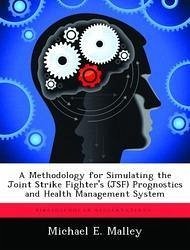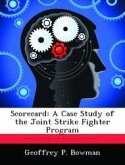The Autonomic Logistics System Simulation (ALSim) was developed to provide decision makers a tool to make informed decisions regarding the Joint Strike Fighter's (JSF) Autonomic Logistics System (ALS). The benefit to ALS is that it provides real time maintenance information to ground maintenance crews, supply depots, and air planners to efficiently manage the availability of JSF aircraft. This thesis effort focuses on developing a methodology to model the Prognostics and Health Management (PHM) component of ALS. The PHM component of JSF is what actually monitors the aircraft status. To develop a PHM methodology to use in ALSim a neural network approach is used. Notional JSF prognostic signals were generated using an interactive Java application, which were then used to build and train a neural network. The neural network is trained to predict when a component is healthy and/or failing. The results of the neural network analysis are meaningful failure detection times and false alarm rates. The analysis presents a batching approach to train the neural network, and looks at the sensitivity of the results to batch size and the neural network classification rule used. The final element of the research is implementing the PHM methodology in ALSim.
Hinweis: Dieser Artikel kann nur an eine deutsche Lieferadresse ausgeliefert werden.
Hinweis: Dieser Artikel kann nur an eine deutsche Lieferadresse ausgeliefert werden.








